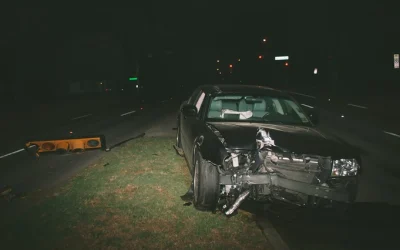Penalties for Possession of Cocaine in Nevada
The strict penalties for people convicted of possessing cocaine in Clark County stand in stark contrast to Las Vegas’s reputation as “Sin City.”
A conviction for possession of cocaine in Nevada carries a potential prison term and the possibility of high fines.
If you have been charged with a cocaine-related offense in Clark County, Nevada, you should contact an experienced Las Vegas criminal defense attorney right away.
It is important to understand that having a drug offense on your criminal record can prevent you from finding a job. Because most cocaine-related charges are felonies under Nevada law, you can also lose your right to carry a firearm. Other rights, such as the right to vote and the right to hold public office, can also be affected by a felony conviction.
This page contains information about cocaine laws and penalties in Nevada. It is not a substitute for consulting with an attorney. Only a Las Vegas cocaine defense lawyer can give you legal advice on your situation.
Cocaine Possession Penalties in Nevada
The penalties for possession of cocaine in Nevada vary based on how many times you have been convicted of possession of a controlled substance in the past.
FIRST OR SECOND OFFENSE: A first or second conviction of possession of cocaine is a category E felony in Nevada, carrying one to four years in a Nevada State Prison. You may be able to avoid prison and a conviction if you are willing to enter a drug education or rehabilitation program.
THIRD OR SUBSEQUENT OFFENSE: A third or subsequent conviction of possession of cocaine is a category D felony in Nevada, which carries one to four years in a Nevada State Prison, and a potential fine of up to $20,000.
Definition of Cocaine Laws in Nevada
Cocaine is an illegal substance in all Nevada counties. It is defined as a schedule II drug under federal law.
Cocaine is typically sold as powder and snorted, though it can be injected. Cocaine may come in other forms such as crack cocaine, which is smoked. Crack cocaine is a “rock” or “freebase” form of cocaine. Common street names for cocaine include coke, blow, white, snow, flake, crack, and rock.
Cocaine is an alkaloid that is obtained from the leaves of the coca plant. It is a stimulant, and because of its interaction with the brain’s reward pathways, it can be highly addictive. Pure cocaine is rarely found on the streets. Cocaine is often cut with other chemicals, including benzocaine, lidocaine, levamisole, procaine, pectin, lactose, aspirin, ketamine, amphetamine, and atropine.
Possession of Cocaine in Nevada – NRS 453.336
Nevada Revised Statutes § 453.336 makes it a crime to possess cocaine in any amount in the state of Nevada. The classification of the criminal offense and the penalties you will face as a result of a conviction depend on the amount of cocaine you are found to possess.
Many people mistakenly believe that in order to be convicted of possession of cocaine in Nevada that you must have the drugs on your person at the time of your arrest. This is not the case. Under Nevada law, “possession” is broadly defined. It may extend to any location over which you exercise control, such as your home or car.
Nevada law prohibits three types of possession of cocaine: actual possession, constructive possession, and joint possession.
ACTUAL POSSESSION OF COCAINE: Actual possession of cocaine occurs when someone physically keeps cocaine on their person. Examples of actual possession of cocaine include holding a vial of crack in your hand or hiding a baggie of cocaine in your back pocket.
CONSTRUCTIVE POSSESSION OF COCAINE: Constructive possession of cocaine occurs when someone stores cocaine in a location over which he or she has control. Examples of constructive possession of cocaine include hiding an ounce of cocaine in your freezer or keeping several grams of cocaine under the passenger seat of your car.
JOINT POSSESSION OF COCAINE: Joint possession of cocaine occurs when two or more people share control or ownership over the same cocaine. An example of joint possession of cocaine is a wife who has knowledge that her husband stores cocaine in the shed and permits this to take place. She can also be prosecuted for possession of cocaine even if she did not use the cocaine herself.
Possession of Cocaine for Purpose of Sale in Nevada – NRS 453.338
Nevada Revised Statutes § 453.338 makes it a crime to possess cocaine for purpose of sale in Nevada.
This offense is also referred to as:
Possession of a controlled substance with intent to sell
Possession of narcotics for purpose of sale
Possession for sale of drugs
Under Nevada law, you may be punished for possession of cocaine for purpose of sale even if you have not sold any cocaine. People are commonly accused of possession of cocaine for purpose of sale based on circumstantial evidence suggestive of drug dealing, including the amount of cocaine in their possession at the time of arrest.
In order to convict someone of possession of cocaine for purpose of sale in Las Vegas, Clark County prosecutors must prove two elements beyond a reasonable doubt:
You were in possession of cocaine, and You had the intent to sell the cocaine.
To prove the first element, the prosecution will argue that you had actual, constructive, or joint possession of cocaine as discussed above. To prove the second element, the prosecution will argue that the circumstances surrounding your arrest or other evidence suggests that you had intent to sell cocaine.
Examples of this type of evidence include:
Quantities of cocaine stored separately in small bags or containers;
Possession of a firearm or other weapon;
Possession of a large quantity of cash; Arrest in a high-crime area known for drug transactions; and
Being arrested with a large quantity of drugs while not high or intoxicated.
Penalties for Possession of Cocaine for Purpose of Sale in Nevada
The penalties for possession of cocaine for purpose of sale in Nevada depend on how many times you have been convicted of the offense before.
FIRST OFFENSE: The first conviction of drug possession for sale is a category D felony in Nevada. The court has discretion to impose probation. Otherwise, the judge may sentence you to one to four years in a Nevada State Prison and a possible fine of up to $5,000.
SECOND OFFENSE: The second conviction of drug possession for sale is a category C felony in Nevada. You can be sentenced to one to five years in a Nevada State Prison and a possible fine of up to $10,000.THIRD OR SUBSEQUENT OFFENSE: The third or a subsequent conviction of drug possession for sale is a category C felony in Nevada. You can be sentenced to three to 15 years in a Nevada State Prison and a possible fine of up to $20,000.
It is important to understand that if you are charged in federal court with drug possession with intent to sell or distribute, you could face a harsher criminal sentence. If you have been charged with federal drug crimes, contact a Las Vegas federal criminal defense attorney right away.
Defenses to Possession of Cocaine in Nevada
If you have been charged with possession of cocaine in Clark County, Nevada or another cocaine-related offense, you should hire an experienced Las Vegas criminal defense lawyer. A lawyer can help argue against a charge of possession of cocaine.
Depending on the facts of your case, the following defenses to possession of cocaine may be available to you:
LACK OF KNOWLEDGE: A critical element of a conviction for possession of any controlled substance in Nevada is knowledge. The prosecutor must prove beyond a reasonable doubt that you had knowledge that the cocaine was in your possession. If you did not know that there was cocaine under the driver seat of your car, for example, you cannot be convicted of possession of cocaine in Nevada.
LACK OF INTENT: If you have been charged with possession of cocaine for purpose of sale in Nevada, prosecutors must prove beyond a reasonable doubt that you intended to sell the cocaine. A criminal defense attorney can argue that the circumstances surrounding your arrest do not show an intent to sell or distribute cocaine.
CONSTITUTIONAL VIOLATIONS: In some cases, it is possible to exclude critical evidence from your cocaine possession trial because it was gathered in violation of your constitutional rights. A criminal defense lawyer can tell you whether your Fourth Amendment, Fifth Amendment, or Sixth Amendment rights were violated and how this might impact your cocaine possession case.
EVIDENTIARY PROBLEMS: Sometimes, it is possible to exclude key evidence from your cocaine possession trial on the basis that it has been tampered with or mishandled. An experienced cocaine defense lawyer will review the investigation conducted by police to see if this type of defense might apply in your case.
Other Cocaine Offenses in Nevada
There are several other cocaine-related offenses under Nevada law. Depending on the amount of cocaine found in your possession at the time of your arrest, you may be charged with violating Nevada’s harsh drug trafficking laws.
If you have been charged with any of the following offenses, contact a Las Vegas drug crimes defense lawyer right away:
Possession of drug paraphernalia, Sale of cocaine, Trafficking of cocaine, Driving under the influence of drugs (DUI-D), Transporting cocaine.




